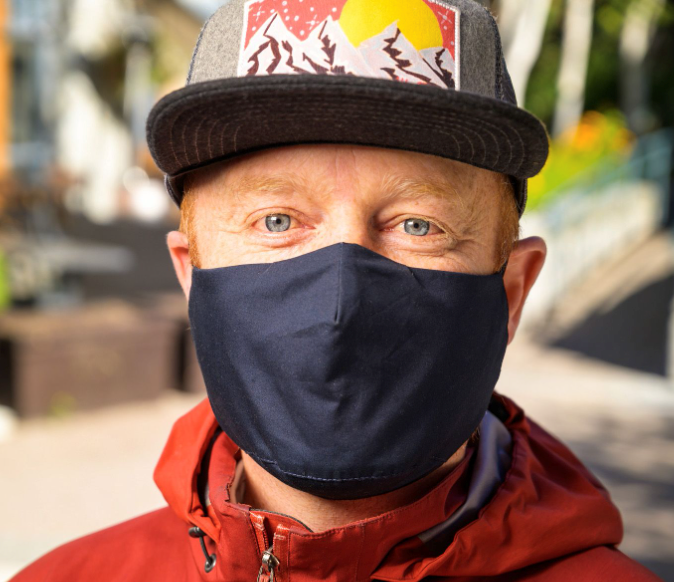Sunday's declaration that all Whistler adults have been made eligible to receive a COVID-19 vaccine came as welcome news for Whistler mayor Jack Crompton.
Since Whistler Blackcomb was ordered shut on March 29 amidst a third wave of rapid COVID-19 transmission in the resort—with many of those cases reportedly linked to the new, faster-spreading P1 variant—Crompton has been calling on B.C. health officials to expand the already extensive vaccination efforts within the resort.
"From the moment the decision was made to close Whistler Blackcomb, we had a real sense that we needed to do everything in our power to ensure that this community is protected, supported and ready for summer. So very quickly, we started to speak to [the provincial] government and make as compelling a case as we could," he said when reached by phone on April 11, shortly following Vancouver Coastal Health's (VCH) announcement.
"In the end I think ... the infection count was what convinced public health to take the actions they have."
Those actions will see every Whistler local and employee aged 18 and older receive a vaccine, if they choose to, in the coming weeks. Many of Whistler's frontline workers and locals in congregate housing have already received their first dose, following the province's efforts to immunize at-risk populations last month.
Despite those vaccinations, Whistler has logged a total of 1,505 confirmed cases of COVID-19 from Jan. 1 to April 5 of this year. Of those, 385 cases were detected in the single week spanning March 29 to April 5. The Howe Sound health region—which includes Whistler, Pemberton, Squamish and parts of the southern Stl’atl’mx Nation—currently has the highest rate of COVID-19 of any Local Health Area in British Columbia.
"The majority of these cases reside in the Whistler community," VCH explained in a news release. The health region's entire population was listed at just over 38,000 people in 2017. Whistler's permanent population makes up about 12,000 of that, without accounting for some seasonal resort staff and second homeowners.
Since the pandemic began, the health authority has identified "three successive waves" of COVID-19 in Whistler, where the majority of confirmed cases affected adults 20 to 39 years of age. The latest spike in case numbers is the largest yet.
Whistler 'still needs to keep our COVID guard up,' says Crompton
Knowing the majority of locals will soon be inoculated against the virus "means we can turn our minds toward having a safe and productive summer," Crompton said. "It means we can start thinking about life after COVID—I can't tell you how exciting that is."
Though Crompton may have served as Whistler's voice to B.C. public health officials, he credits the community for leading the charge for mass vaccinations.
"There were a number of calls on Facebook for [Whistler] council to rise to the challenge and ensure that the provincial government understood the realities that we face," he said. "That push from our community was extremely useful and helpful and motivating. I don't see this as a successful lobbying effort on my part, or on council's part. This is very much a successful community advocacy effort, which makes it even more gratifying."
Despite the sense of optimism that's accompanying Whistler's widespread vaccinations, the mayor cautioned locals "to keep our COVID guard up" for a little while longer. The protection provided by a vaccine only kicks in two to three weeks after the shot is administered, Crompton explained.
"Another challenge is that not everyone in the province will be vaccinated as early as we will," he added.
While most Whistler locals are celebrating Sunday's announcement, the same can't be said for all British Columbians. Some took to social media platforms like Twitter to question why young Whistler locals were being prioritized by the province's vaccine roll-out, over other high-risk sectors of B.C.'s population that are still waiting for their shot.
To those criticizing the move, Crompton said, "This is a decision that doesn't just protect Whistler; it protects the province. So many people visit Whistler—in the spring, summer, fall, and winter—and then go back to their homes, that community-level protection [here] will be useful in extending protection" to the rest of B.C.
"I think there's a misunderstanding of who a Whistlerite is," he continued. "For the most part, we're frontline hospitality workers and small business owners. We are on the frontlines, seeing many different people from all over the province, and around the world, and so a pandemic is especially challenging to us."
Through these challenges, "It's been great working with VCH and the provincial health office," Crompton said.
"I certainly feel supported by them. When we've needed their help and attention, they have been there throughout this pandemic. This decision is an example of that."






